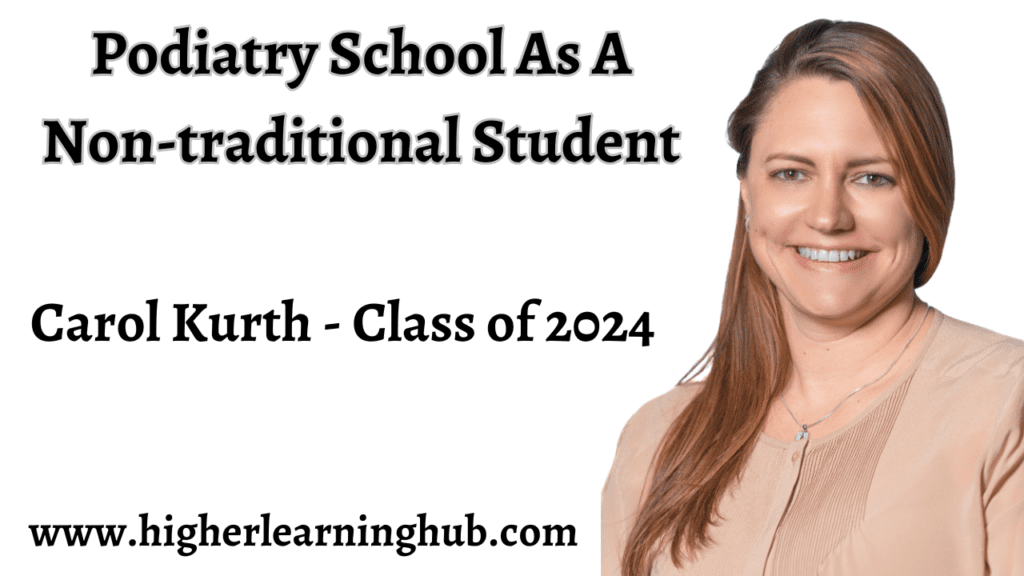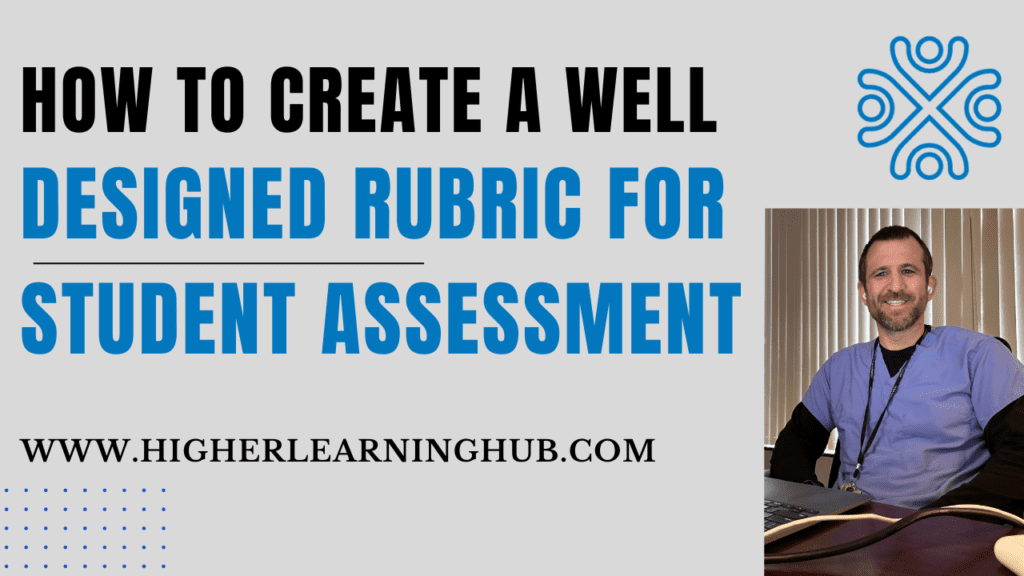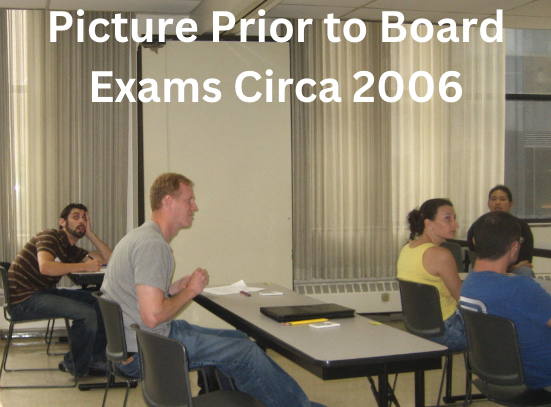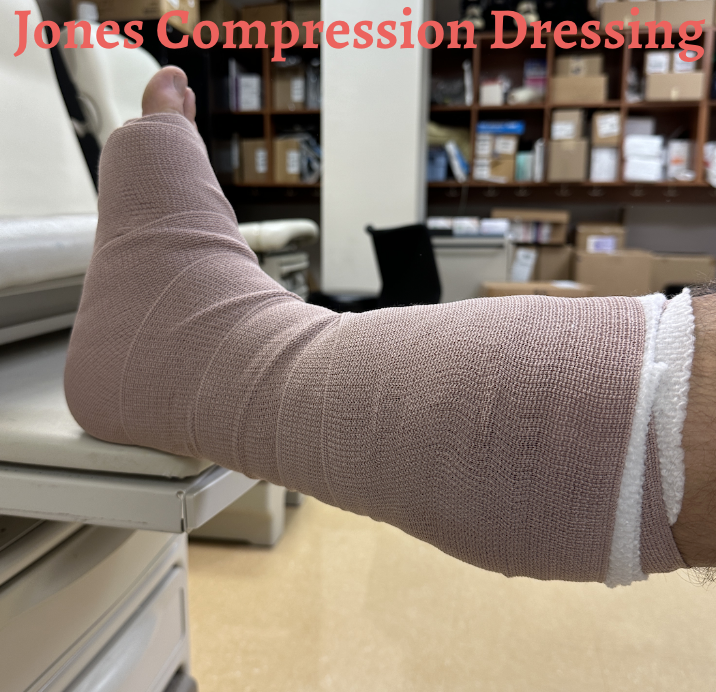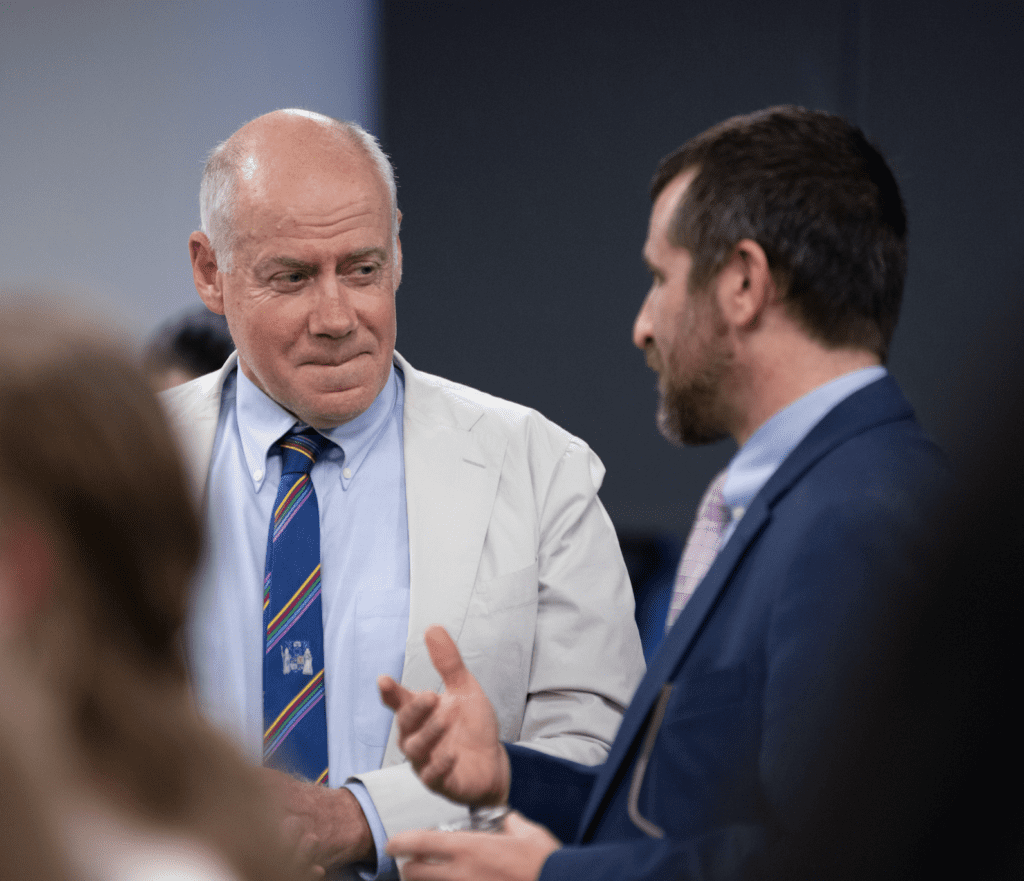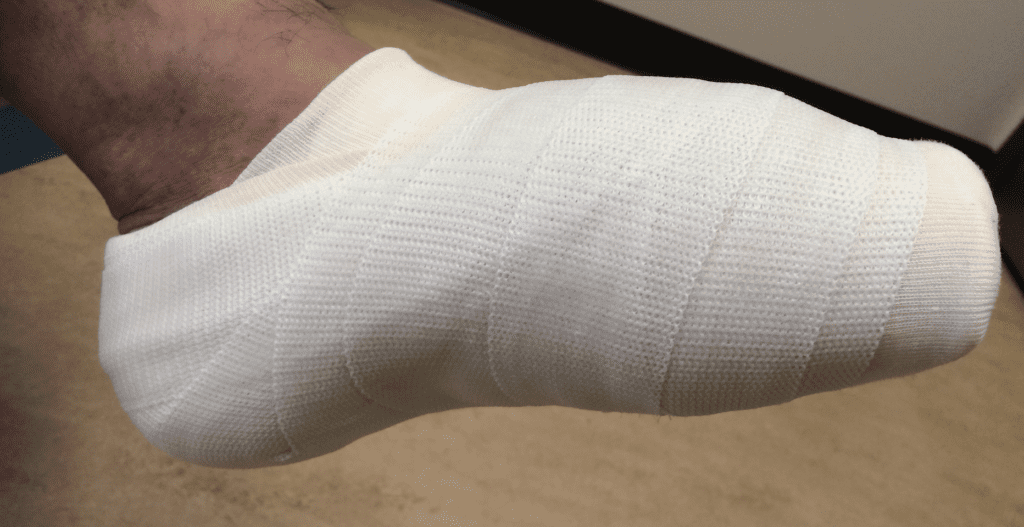Guest Blog Post Authored by Carol Kurth – Scholl College Class of 2024; Published on April 17th, 2024
The choice to start a career in podiatry doesn’t always come as the “next step” after undergrad. I was over the age of 30 when I applied to podiatry school. My experiences and journey looked a little different than my peers; read more to find out why.
My Initial Interest In Podiatry As A Profession
Podiatry was something I was interested in during undergrad. This might make my non-traditional experience different from others reading this who are considering making the same transition. When I was in college, I had a postoperative infection that caused me to have weekly visits with my podiatrist. I was planning to go to veterinarian school at that point in my life and was shadowing a large animal veterinarian when the infection started. During my time with my DPM, I realized his lifestyle seemed much more appealing than that of a veterinarian; not to mention getting into veterinary school is extremely competitive and I already had a “B” on my transcript. I continued through my undergraduate courses taking all the prerequisites for podiatry school.
Committing to four years more of school and four more years of debt was daunting after I struggled to develop good study habits in undergraduate school. I took the GRE in my final year of college without any preparation but didn’t have a plan for my next steps. I went on an “HIV/AIDS education” trip to Tanzania and applied to Teach For America in hopes of having a gap year to figure out if I was ready for podiatry school. That gap year turned into nine years where I became a high school science teacher, using the knowledge I gained during my podiatry school prerequisite classes to teach others.
In 2020, right before COVID struck the United States, I threw in the teaching towel. I immediately set up a tour at Rosalind Franklin University as a prospective student. I was living in Chicago and the school was a commutable distance; it felt like the universe was saying it was time for change. I was worried about the MCAT but the faculty on campus convinced me that I would be just fine. I also had to worry about my prerequisites being “out of date.” Luckily, the school was willing to work with me since I was using the science knowledge as a teacher.
Was I Ready To Take The MCAT?
Prepping for the MCAT was hard and somewhat lonely. I didn’t have anyone around me doing the same thing. I picked up some used review books and simply started studying any way I knew how. I hadn’t heard of ANKI or any of the ‘“trendy” study tips. There was no MCAT boot camp at my university or even a pre-health professional I could speak to. However, I was helped by my knowledge of learning theory that I learned as a teacher. I took every practice test I could get my hands on and remediated every question I got wrong. YouTube, Khan Academy, and my books were my life for roughly 6-8 weeks. I took the MCAT just in time before it was canceled for COVID.
While studying for the MCAT I wrote my application. I remember struggling to find letters of recommendation for my application because I hadn’t been a student in so long. I scrounged up three from former employers and crossed my fingers that they would be good enough. Luckily, I was offered an interview that occurred online.
Preparing For The Podiatry School Interview
I used traditional interview preparation techniques but I think the hardest thing to explain was “Why podiatry now?” It was hard to articulate that my time teaching was essential for me to feel comfortable with the debt and commitment medical school requires. I got married during those nine years and had a spouse that I trusted to support me through the challenges of medical education. I finally had faith in myself that I would succeed.
I wasn’t accepted right away; it wasn’t until my MCAT scores came back demonstrating that my sub-par undergraduate GPA was a reflection of my immaturity and poor study skills, not lack of knowledge, that I was formally accepted. I was elated with this news.
The Start of Podiatry School As A Non–Traditional Student
Starting school during COVID meant it was harder to connect with my peers since we weren’t in class together. This was likely a blessing for me. As the year went on, I struggled to relate to my classmates at times. I think this is the biggest “surprise” or note that I would make for non-traditional students. I had taken courses while working as a teacher and prepped for the MCAT nearly entirely on my own. The education and studying part of school I could be in control of and had practiced those skills making it relatively straightforward. I expected courses to be hard and to feel “like you are drinking out of a firehose.” What I was not prepared for was the differences in experience between me and my peers.


Podiatry School As A Non-Traditional Student – Conclusion
Despite those challenges, I have made some of the best friends during my time in school. I am proud of what I accomplished and excited to step into residency. I’m sure being an “older” resident will continue to challenge me (and likely my attendings) but I think the belief that we are all just trying to get better one day at a time is the best way to manage these differences. Being a non-traditional student brings about unique challenges but also great attributes that will be appreciated in the right setting. I’m so thankful for the opportunity to change careers at this point in my life and am excited to keep my patients healthy and moving!
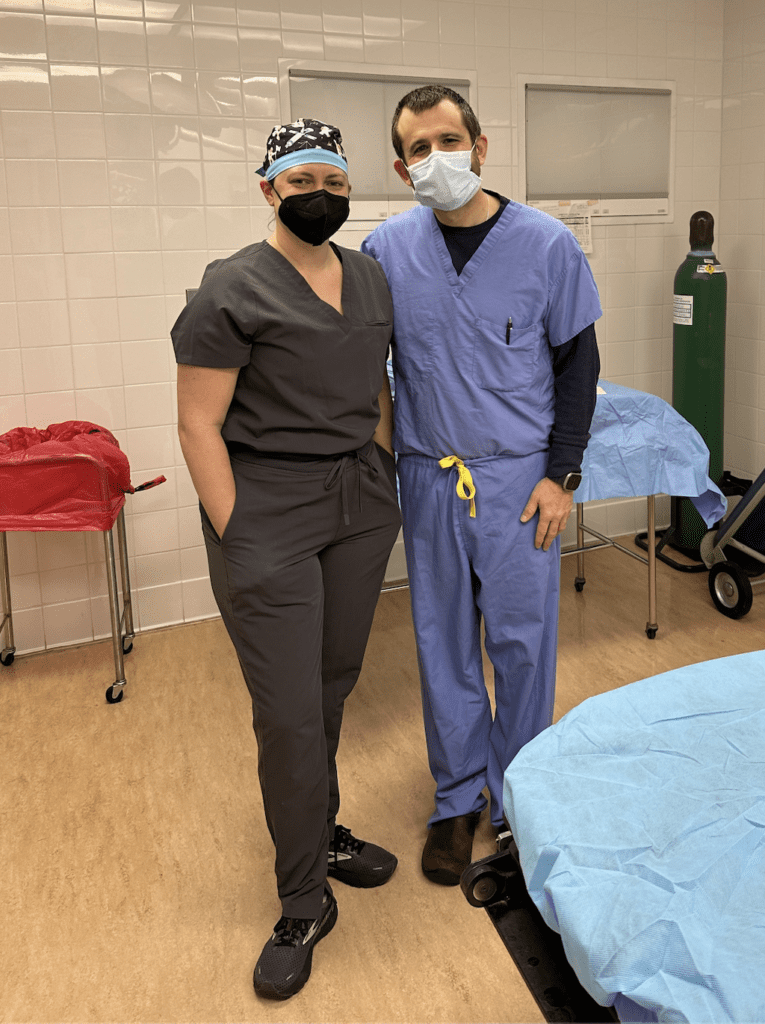

Authored by Dr. Carol Kurth – Scholl Class of 2024 – Instagram @Kurthpod

